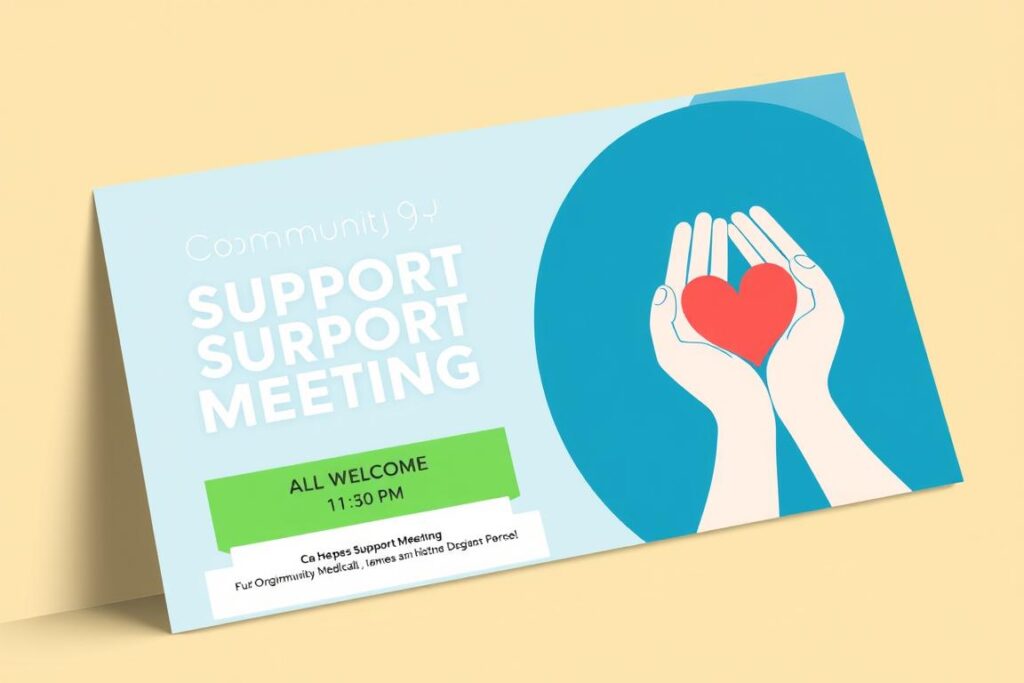Imagine meeting someone amazing, feeling that spark of connection, and then freezing with anxiety when you realize it’s time to disclose your herpes status. That moment of vulnerability can feel overwhelming, but it doesn’t have to derail your dating life. Whether you’ve been recently diagnosed or have been living with herpes for years, navigating the dating landscape with HSV is entirely possible—and millions of Americans are doing it successfully every day.
According to the CDC, about 12% of Americans aged 14-49 have genital herpes, and when you include oral herpes (HSV-1), the numbers climb even higher. You’re far from alone, and with the right approach to disclosure, messaging, and meeting potential partners, dating with herpes can be just as fulfilling as anyone else’s dating experience.
This comprehensive guide provides practical disclosure scripts, effective messaging strategies, and information about where to meet understanding partners in 2025. Let’s transform what might feel like a dating obstacle into an opportunity for deeper connection and honesty.
Understanding Herpes: Facts You Should Know
Before diving into dating strategies, it’s important to understand some basic facts about herpes that can help both you and potential partners put the condition in perspective.
Herpes is an extremely common viral infection. HSV-1 typically causes oral herpes (cold sores) but can also cause genital herpes, while HSV-2 primarily causes genital herpes. According to the latest CDC data, over half of Americans have HSV-1, and about one in six Americans has genital herpes.
The virus can be transmitted through skin-to-skin contact, even when no symptoms are present through a process called “viral shedding.” However, transmission risk can be significantly reduced through medication, avoiding sex during outbreaks, and using protection.
Most importantly, herpes is a manageable skin condition—not a life sentence or reflection of your worth. As one study published in the Journal of Health Psychology (2024) found, the psychological impact of herpes often far outweighs its physical effects, largely due to social stigma rather than the condition itself.
Understanding these facts can help you approach disclosure with confidence and accurate information, which is crucial when explaining herpes to potential partners.
Effective Herpes Disclosure Scripts for 2025
Disclosing your herpes status is often the most anxiety-inducing part of dating with HSV. However, having prepared, thoughtful scripts can make this conversation significantly easier. The following disclosure templates have been developed based on feedback from relationship counselors and individuals who have successfully navigated dating with herpes.

Casual Dating Disclosure Script
“I’ve really enjoyed getting to know you, and I feel we’re heading toward being intimate. Before that happens, I want to let you know that I have herpes. I take daily medication to reduce transmission risk, and I’m always careful about symptoms. I’m happy to answer any questions you might have or give you some time to think about it. Many people have it—about 1 in 6 adults—and most don’t even know they have it because they’ve never had symptoms.”
Serious Relationship Disclosure Script
“I value honesty in relationships, and there’s something I want to share with you. I have genital herpes. I’ve had it for [time period], and I manage it with [your management approach]. The risk of transmission is relatively low, especially with precautions, but it’s still something I wanted you to know about. I really care about where our relationship is going, and I wanted to give you this information so you can make informed choices. Do you have any questions I can answer?”
Online Dating Disclosure Script
“I’ve really enjoyed our conversations, and before we meet in person, I wanted to share something with you. I have HSV-2, which is managed and rarely affects my life. I’m telling you because I respect you and believe in starting relationships with honesty. I understand if you need time to process this information or have questions. Either way, I’ve appreciated connecting with you.”
Post-Date, Pre-Intimacy Script
“I’ve had a wonderful time with you tonight, and I’m feeling a strong connection. Before things progress further, I want to let you know that I have herpes. I always disclose this because I respect my partners’ right to make informed decisions. I take suppressive therapy which significantly reduces transmission risk, and I’m always careful about protection. I’m happy to give you some time to think about this or answer any questions you might have.”
When is the best time to disclose herpes to a new partner?
The ideal time is after you’ve established some connection but before any sexual intimacy occurs. This usually means after a few dates when you feel there’s potential for the relationship to become physical, but before you’re in the heat of the moment. This timing gives your partner space to process the information without feeling pressured or misled.
Handling Different Responses to Your Disclosure
When you disclose your herpes status, you may encounter various reactions. Being prepared for different responses can help you navigate this conversation with confidence.

Positive Response
Some people will be educated about herpes or have experience with it. They might say, “Thank you for telling me. I appreciate your honesty,” or “That’s not a big deal to me.” Express gratitude for their understanding and continue the conversation about safety measures.
Questions and Concerns
Many people will have questions about transmission, symptoms, and protection. Be prepared with accurate information. If they ask for time to research, respond with, “I completely understand. I’m happy to provide some reliable resources or talk more when you’re ready.”
Negative Response
Unfortunately, some people may react negatively due to stigma or misinformation. If someone responds poorly, remember that their reaction reflects their education level about herpes, not your worth. You might say, “I understand this is surprising information. If you’d like to learn more before deciding, I’m open to that.”
Remember: A 2024 study in the Journal of Sexual Health found that how you disclose—with confidence, accurate information, and without shame – significantly impacts how the information is received. Your attitude toward your herpes status often shapes your partner’s perception.
Effective Messaging Strategies When Dating With Herpes
Whether you’re texting, using dating apps, or communicating in person, how you message about herpes matters. These strategies can help you communicate effectively while dating.

Pre-Disclosure Messaging Tips
Post-Disclosure Messaging Strategies
Ready to Explore More About STD Dating?
Discover comprehensive resources, community insights, and expert advice on navigating relationships with STDs.
Online Dating Profile Strategies
When it comes to dating profiles, you have options for how to approach your herpes status:
Disclosure in Profile
Some people choose to mention their HSV status directly in their profile with statements like: “HSV+ and open about it” or “Living successfully with herpes and happy to discuss.” This approach filters out those who aren’t open to dating someone with herpes, potentially saving you from rejection later.
Private Disclosure
Others prefer to disclose privately after establishing a connection. This gives potential partners a chance to get to know you before making judgments based on herpes status alone. If you choose this approach, be prepared to disclose before intimacy occurs.
Where to Meet Partners When Dating With Herpes in 2025
Finding understanding partners can be easier when you know where to look. Here are the best places to meet potential partners who are either in the same situation or open-minded about dating someone with herpes.

Specialized Dating Platforms
| Platform | Focus | Key Features | Community Size |
| Positive Singles | All STIs including herpes | Forums, counseling resources, privacy controls | Large (2M+ users) |
| MPWH (Meet People With Herpes) | Herpes-specific | Success stories, blogs, dating advice | Medium |
| HSV Singles | HSV-1 and HSV-2 | Video chat, verification system | Growing |
| H-Date | Herpes dating | Mobile app, location-based matching | Medium |
| HWerks | Herpes community | Events calendar, support resources | Small but active |
In-Person Support Groups and Events

Mainstream Dating Platforms
Many people with herpes successfully use mainstream dating apps. Here’s how to navigate them effectively:
Benefits
Strategies

Managing Rejection and Building Resilience
Rejection is part of dating for everyone, but it can feel more personal when it’s related to herpes. Developing resilience is key to maintaining a positive dating experience.

Reframing Rejection
“Rejection isn’t a reflection of your worth—it’s a compatibility issue. Someone who can’t accept your herpes status isn’t the right match for you, just as someone with different values or goals might not be compatible.”
Building Dating Resilience
Self-Care Practices
Perspective Shifts
Success Perspective: A 2023 survey of people with herpes found that 87% of respondents were in relationships or actively dating, with 94% reporting that herpes had ultimately minimal impact on their long-term relationship satisfaction.
Reducing Transmission Risk While Dating
An important part of dating with herpes is understanding how to reduce transmission risk. This knowledge can empower both you and your partners to make informed decisions.

Medical Management
Safer Sex Practices
Embracing Dating With Herpes: Moving Forward
Dating with herpes in 2025 doesn’t have to be defined by limitations or fear. With the right disclosure approaches, messaging strategies, and meeting places, you can create meaningful connections and find partners who see you for who you are—not just your HSV status.
Remember that millions of Americans with herpes are in happy, healthy relationships. Your herpes status is just one small aspect of who you are as a person and a potential partner. By approaching dating with honesty, confidence, and accurate information, you’re setting the foundation for authentic connections.
The most important thing to remember is that the right person will respond with understanding and acceptance. Those who can’t may not be the right match for you—and that’s okay. Every disclosure conversation, whether it leads to acceptance or not, is practice that builds your confidence and resilience.
Continue Your Dating Journey With Confidence
For more resources, community support, and expert advice on navigating relationships with STDs, visit our comprehensive guide.
Have fun,
Ray Baker




